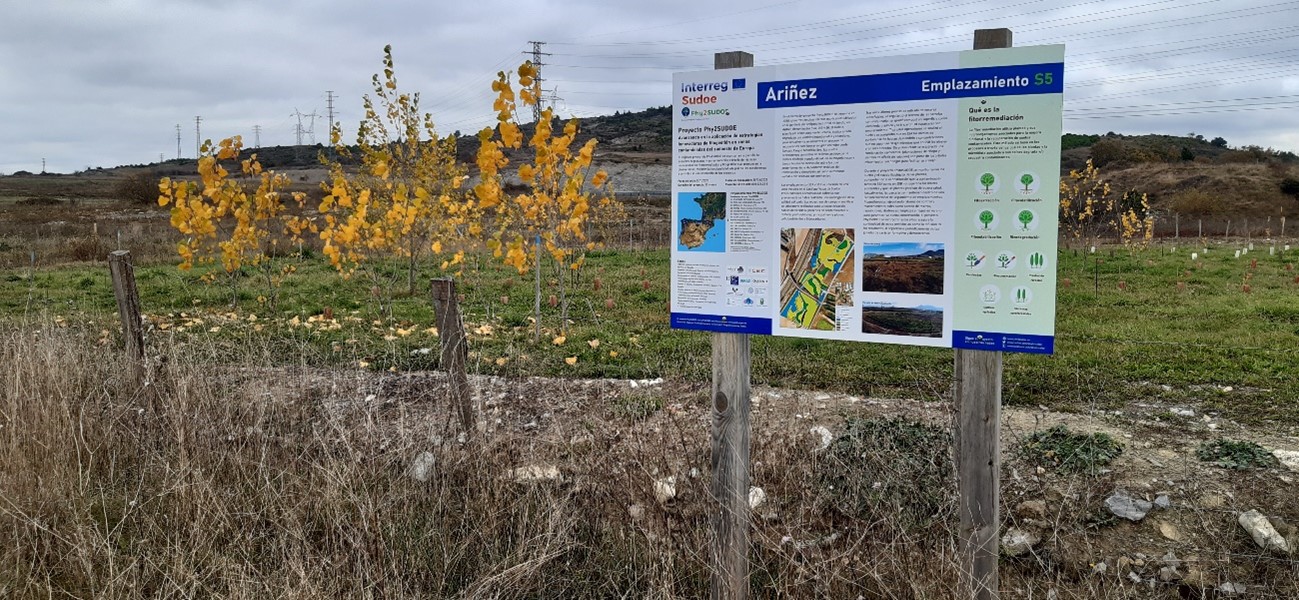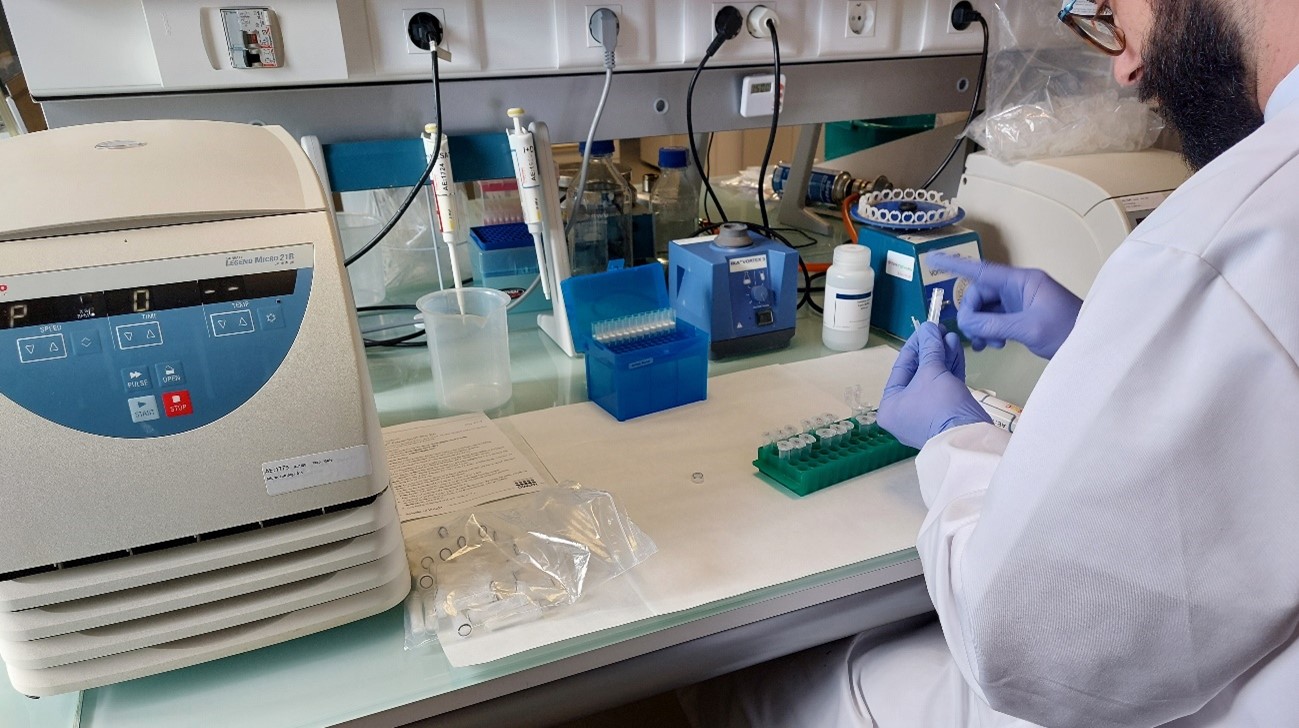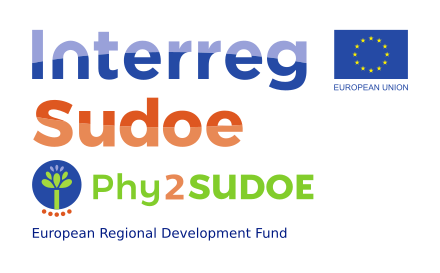
27 Apr Meta-study to assess the long-term effect of phytomanagement with Populus sp. on soil biodiversity
One of the strengths of the PHY2SUDOE project is that it has a network of contaminated sites that are being phytomanaged over many years. This gives us the possibility to study the effects of phytomanagement practices over the long term in different soil and climatic contexts.
This spring 2022, in a coordinated effort, soil sampling has been carried out at sites S1 – ST MÉDARD D’EYRANS (Gironde, FR), S2 – CHABAN-DELMAS (Gironde, FR), S3 – BORRALHA (Montalegre, PT), S5b – ARIÑEZ (Vitoria-Gasteiz, Basque Country, ES) and S8 – TOURO (Galicia, ES). In all these sites degraded or polluted soils are being phytomanaged with Populus sp.

Performing DNA extractions in NEIKER’s laboratory
The aim of this meta-study is to assess the long-term effect of Populus sp. phytomanagement on soil biodiversity at different levels of the food web. The idea is to study variables related to ecological restoration dynamics (diversity, interactions, functionality, stability) and try to find common patterns between sites. To this end, metabarcoding measurements will be made of 16S rRNA (bacteria and archaea), ITS (fungi), 18s rRNA and COI (other eukaryotes) genes. Metabarcoding allows the genetic composition of a DNA sample to be determined by PCR amplification of specific fragments, followed by sequencing by high-throughput next-generation sequencing methodologies.
We must not forget that soils are home to more than 25% of the planet’s biological diversity and that this biodiversity fulfils essential functions, contributing for example to the regulation of the nutrient cycle and the dynamics of organic matter, to the production of biomass and even to the recovery of contaminated sites.

